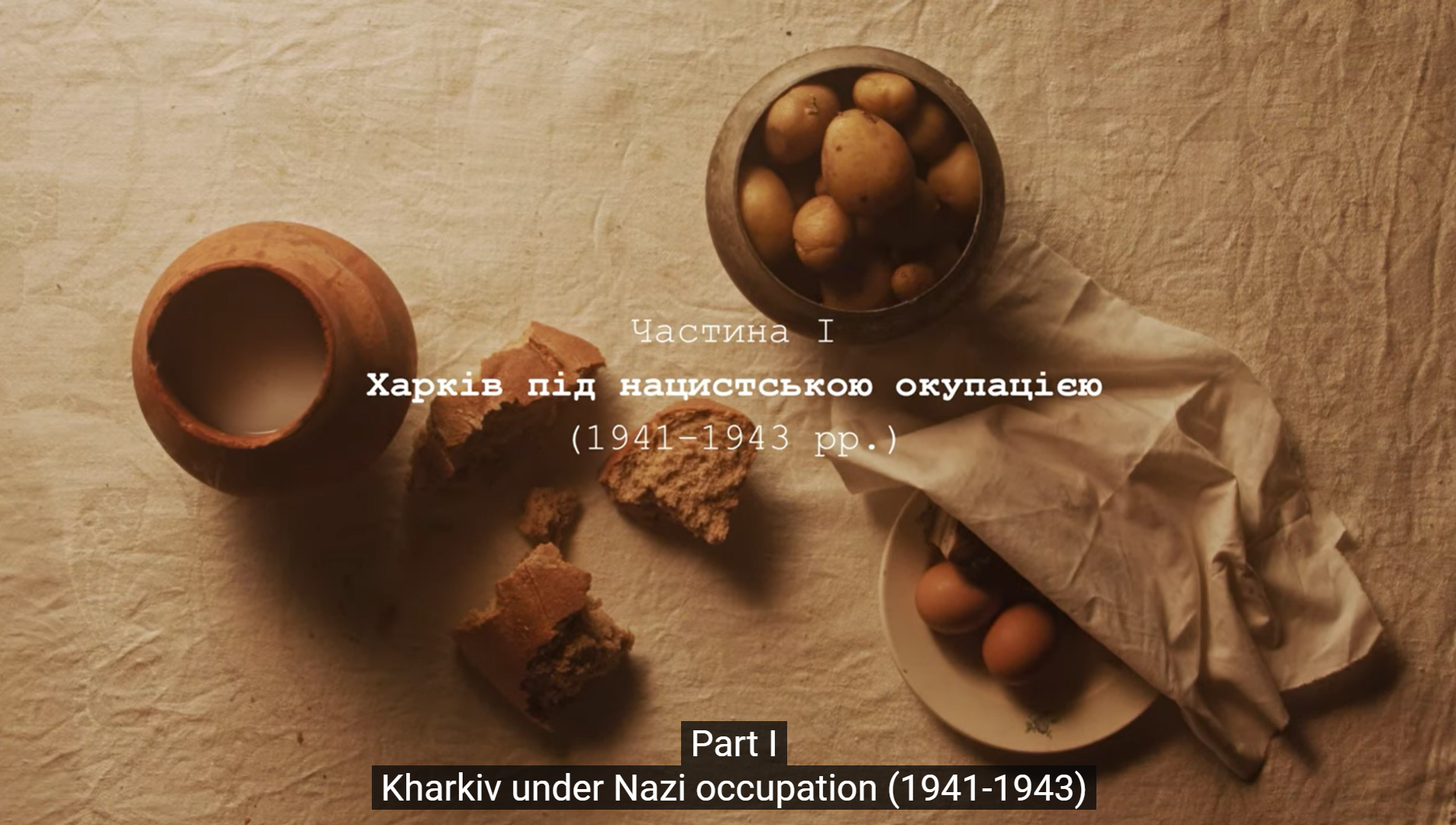*Editor’s Note: This piece was originally published in the Oral History Journal.
Gelinada Grinchenko, Professor of History at Kharkiv National University, Ukraine, President of the Oral History Association, Ukraine, and Scholar at Risk at the University of Wuppertal, Germany, reflects on her forthcoming book and series of accompanying short films On Kharkiv and ourselves: the city’s fates and experiences in its inhabitants’ oral histories. Gelinada also discusses her experience and role in the context of the current conflict in Ukraine as an oral historian, survivor, and potential storyteller in the future.

‘On the evening of 23 February 2022, my colleagues and I recorded my commentary for a short film to accompany the second part of the book. The book is in three parts: the beginning of the Nazi-Soviet war and the Nazi invasion in Kharkiv; the Holocaust and the Nazi crimes in the city; and life under occupation, liberation and the end of the war. This second film focused on the Nazi persecution of the Jews of Kharkiv and its culmination in the execution of about ten thousand Jews in Drobytsky Yar in December 1941-January 1942 on the eastern outskirts of the city. Recording the commentary was hard and back at home, I was worried about how best to combine the voices of the narrators in the film with my commentary as the researcher, together with archive photographs, animation, sound effects, and music. I fell asleep late that night, and two hours later, I woke up from the sound of real explosions: at 5 am on the 24 February 2022 the Russians bombed my city.
‘I began my work on this book in 2021 with two groups of sources: the University of Southern California (USC) Shoah Foundation collection of oral histories of the Holocaust survivors’ from Ukraine – recorded in the mid 1990s, and those recorded by the Babyn Yar Holocaust Memorial Center (Kyiv, Ukraine) between 2018 and 2021. Being recorded at different times, these oral histories provide an opportunity to analyse, among other things, changes in the official narrative of the war.
‘The book is dedicated to my mother. She was born and raised in Kharkiv and experienced the war as a little girl. The most terrible thing that she remembers is how the track in which she and her mother and several other officer’s families, who were leaving the city, came under bombardment.
‘I am sure that when I am 86, I will also recall with horror the sound of a Russian plane over Kharkiv when my family fled. And now, I perceive the stories of many of the Second World War survivors in a completely different way. When they say that, according to their impression, the plane was flying to kill them directly, earlier I considered that as a hyperbole, an emotional exaggeration. Now I understand and empathise with them. Two months ago, when we fled from Kharkiv in March 2022, it seemed to me too that there were only three of us in the whole world: the Russian killer pilot, my frightened little son, and me.
‘Now that I am in a safe place, I think a lot about the parallels between my experience and the experience of those who survived the Second World War. The escalation of “never again” into “never? again!” turned my personal life and my research beliefs and priorities upside down. From my own experience – no longer as a researcher but as a survivor – I see that we have very few ethical standards, and moral guidelines for conducting oral history research in times of war. This is a particular concern for people who continue to experience the trauma of loss, displacement, bombing, or flight. How should researchers approach fieldwork in times of continuously unfolding trauma? How can we conduct interview-based research in times of war without harming those with whom we work? These are the central questions of a planned summer institute: Witnessing War in Ukraine, Oral History and Interview-based research.’
For more information about the summer institute, click here.
To watch the first of the short films about the beginning of the war in 1941 in Kharkiv:

Comments